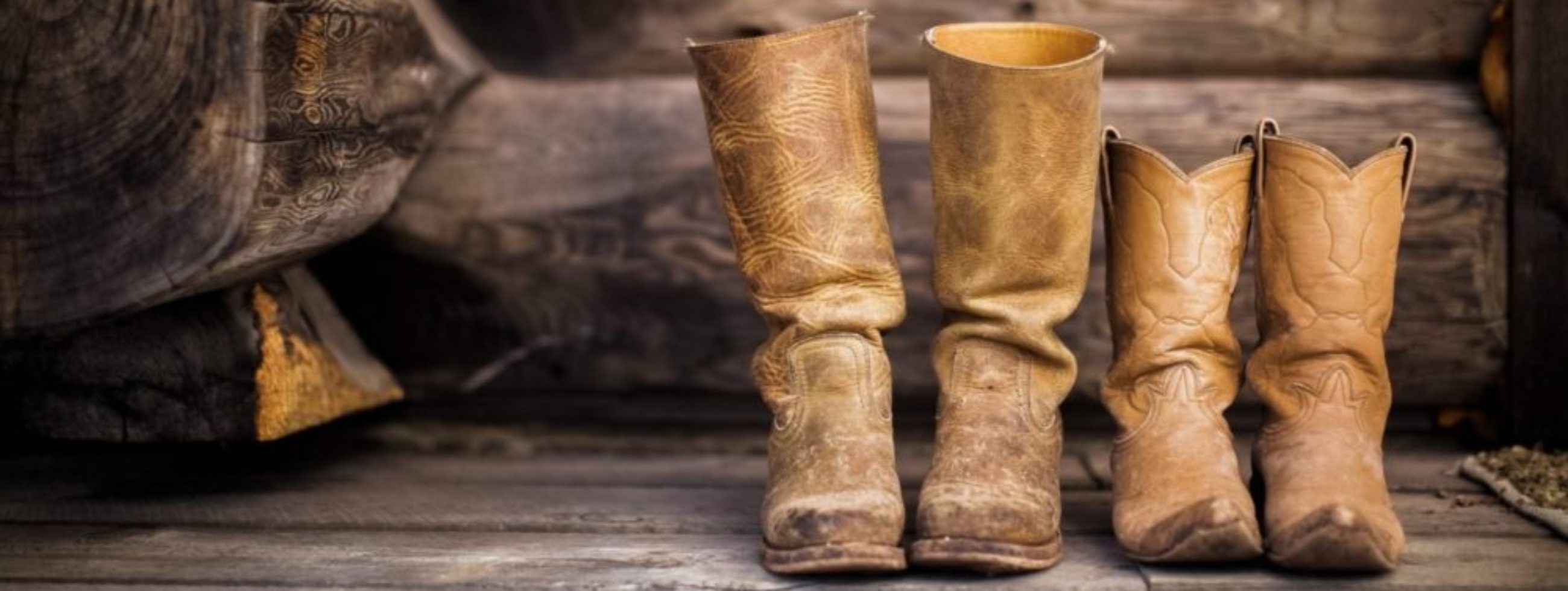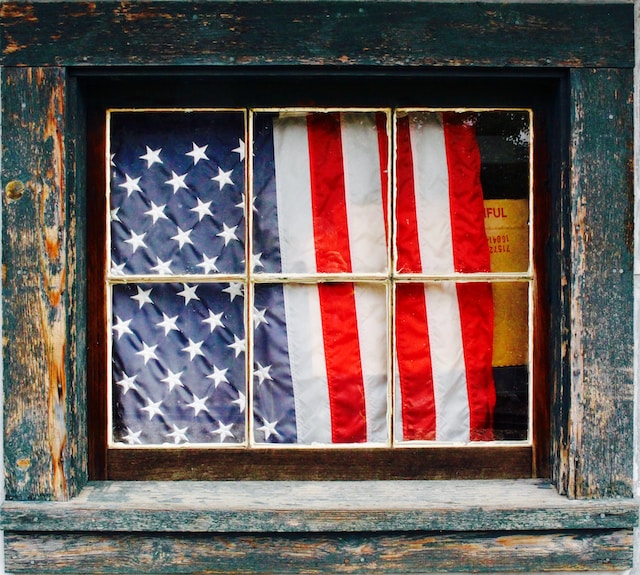It’s the screams that wake me. Once I’m awake, it’s sort of routine. Next there’s mother’s voice shushing him. Then the moans, shifting to sobs that dwindle to gasps, and finally, silence.
It’s not every night. Some nights it’s different moans and the rhythmic rocking of bed springs which signals they’re going at it. Once, on a moonlit night, I saw Mom holding Dad’s head against her neck as he panted his need for her into the cool night air. Everyone thinks my war hero father is the master of the universe, but I know better. Mom is.
No matter what terrors assail him in the night, mornings bring my father’s usual optimistic industry. With a thumb hooked into his belt and his twenty-two resting on his forearm, he strides out across our VA-bought land to check our cattle. In his mind, he’s the Virginian, Own Wister’s cowboy hero, fresh from the Civil War, eager to make his mark. In reality, war is the only thing my father shares with Wister’s hero, that and his stubborn determination. Our paltry one hundred sixty acres will never be expanded to the vast Wister-style spread Dad envisions and even at the ripe old age of nine, I have doubts about our thirty-two mangy cows and adolescent bull ever being the foundation of a cattle kingdom.
But such is the power of his dream, my mother and I are captured by it. Saturdays are livestock sale days. The excitement we feel is electric. Mother dresses in her best Bryn Mawr dress adorned with the heavy turquoise broach Dad bought her before he went to fight the Arabs for their oil in Iraq. Dad and I preen in front of the mirror in crisply starched khakis and trim fitting cowboy shirts. Our well-brushed Resistol cowboy hats are removed from the top shelf of Mother’s closet where we keep them safe from the ever-present mice. Uncle Eben, who lives back East, ordered them for our Christmas last year. The attendant delirium over the arrival of those hats, I am convinced, will never be reached again.
Mom is Uncle Eben’s favorite sister, so he indulges her support of Dad’s dream of ranching. He believes Mom will eventually see sense and abandon what he calls an antediluvian pipedream. Cowboy fantasies are pretty contagious though. He comes to visit once a year and fits himself out in the most outrageous Cowboy paraphernalia you could hope to find. Trips into town become a red-faced nightmare for Dad and me. But, I guess the hats are worth it.
At the auction house, Dad scouts out the brood cows. The best are out of our price range. We eye the most promising of the poorly specimens noting their numbers. There’s not much competition for cows destined for the pleasures of the local canine population. We buy four. Loading the trailer, Dad sheds his original dubious assessment of his purchase.
“Son, with a little feed these sweethearts will drop some pretty calves,” he says, eyes shining. “It only takes one healthy calf to make our money back. After that, it’s all profit.
Dubious, I calculate the price we’d need to recoup our money. “You think we could get a calf that good?” I ask. Instantly regretting my doubts, I exclaim, “we can feed them that special feed with molasses. That’ll fatten them up.”
“Don’t forget, son, we have four. Better odds,” Dad says.
That cinches it. I like good odds. I’m learning about odds in math. The better the odds, the less the risk. Risk, I don’t like at all. I’m a sure thing boy, double checking every problem before I turn in my homework and preparing for every test as though it’s the entrance exam for Princeton, where my Uncle Eben teaches. Still … those cows look promising, now that I look closer.
We enter the cows into Dad’s herd ledger with high hopes. Mom and I choose names. Daisy, Rose, and Petal are typical of her choices. Old Crumple Horn, Three tits, and Stumbles for a half blind Holstein are more in my line of nomenclature.
Worn out cows don’t have fight. When it’s time to calve, they lay on their sides, eyes bulging with the strain on their thin old bodies, content to suffer and die. It’s as if they know in their dull, bovine minds the time for producing spring calves is long past. The only thing animated in these sad dramas is Dad and me. Cowboy dreams die hard.
Uncle Eben’s faith in Mom isn’t misplaced. After too many stillborn calves and dying cows, she goes back to work. Before she was a rancher’s wife, Mom was a forensic accountant. But this is ranch country. Our town only has one bank, one grocery store, three bars and six churches. Not much call for forensic accountants, unless you consider the churches, but Mom won’t. The worst fraud she ever found was with a church. And getting a conviction is nigh on impossible. But there’s still a lot of folks looking for my mother’s kind of help. She can keep books so the government don’t get a penny or at least not many pennies, and it’s all on the up-and-up. In no time, she’s working all day long and sometimes late into the night to keep up with what she calls, client demand. Dad calls it ornery cheapskates looking for way more than they deserve.
Dad and I work through spring, summer, and into fall without going to the livestock auction. Mending fences and mowing hay keeps us busy. In all that time there are only three live births, and one leaves the mother dead. Dad and I bottle feed that boney little orphan and keep it in the yard. When we finally decide to take another run at the livestock auction, it’s late fall, and Dad has a bit more jingle in his pocket. He’s taken out a loan on a third of this year’s hay. I worry.
Sale day, Mom sits at the breakfast table. “You know,” she says all casual like, “I have put a bit by. Most is going into the boy’s college fund, but I have enough to add a bit to your stash.”
Dad looks up from his apple pie and really peers at Mom. “You sure?” he says. Mom’s money, unlike them in the bedroom, never frolics with Dad’s.
“I wouldn’t offer otherwise,” she says and goes to get her big ledger-sized checkbook. While she’s gone, we wolf down our pie and bolt to the truck. Dad’s grinning like a Cheshire cat the whole way to town.
“Don’t you want Mom’s money?” I say.
He laughs and shakes his head, No.
“What’s she going to think? The way we ran off?”
“Don’t you worry about what your Mother thinks,” he says. “I know what she thinks.”
We jolt and jog down the pot-hole pocked road for a bit.
“And?”
Dad looks at me with that speculative look he has when he’s trying to decide if I’m old enough to be let in on some big secret. I already know about sex and other such things and find it aggravating that he hesitates to tell me anything. After all, I’m nine and can buck hay better than Cody Lunsford, and he’s twelve.
“Son,” he says with the serious tone he uses when he’s going to tell me something big.
“What do you think I want from your Mother?”
That’s an awkward question cause I know. He wants what he gets, pretty often as far as I can tell from the bed springs. And when he doesn’t get that, he gets her sweet shushes when his war terrors plague him. He also wants her apple pies and Boston baked beans, but they’re pretty far down on his list of wants. After thinking for a while, I decide I’d best wait him out.
When he realizes I’m not talking, he continues. “The last thing I want from your Mother is her money.”
“Okay,” I say.
“What a man wants from his wife,” he says, “is her belief in him. With your Mother, that means this ranch. I need her to believe I can cowboy this ranch and make it pay.”
“Really?” I say. “Dad, you were raised in New York.”
He looks at me and bursts into laughter. “But I want the American Dream, son, the American Dream.”
I look back across the parched, blowing fields toward our scraggly property, the dust boiling out behind us. Personally, I think he should have taken the money.
Evelyn Fletcher Symes comes from a long line of story tellers and has all the attributes of tall tale tellers: exaggeration, understatement, and an uncanny ability to fabricate astonishingly believable lies.

